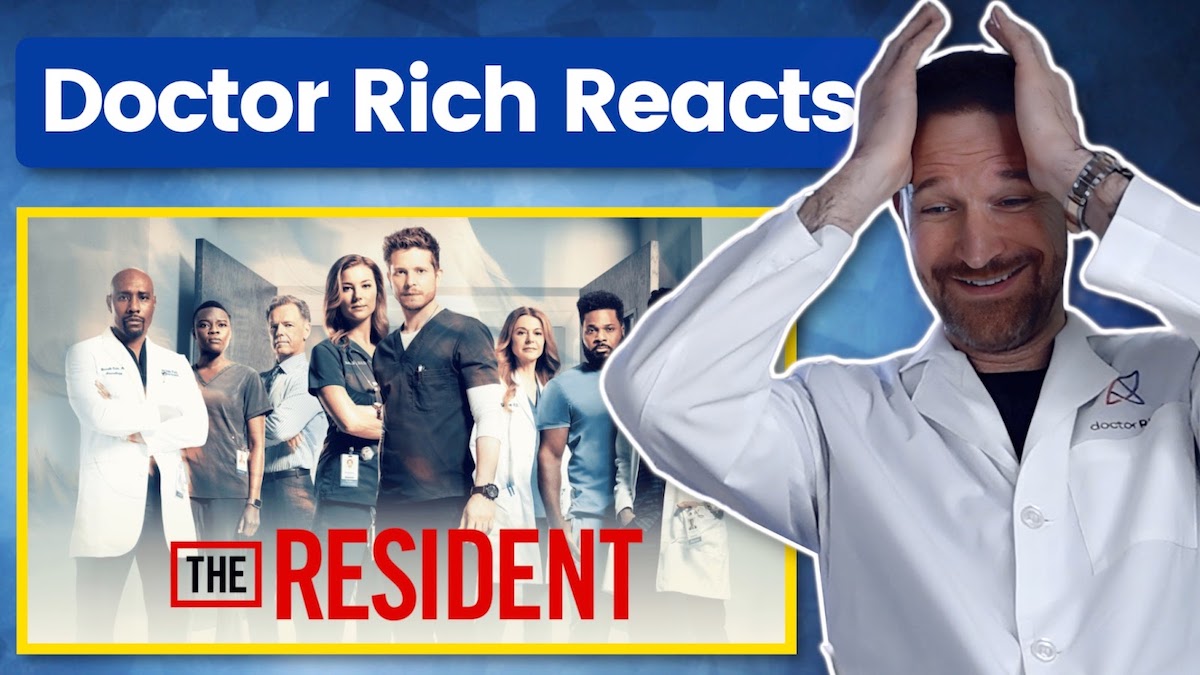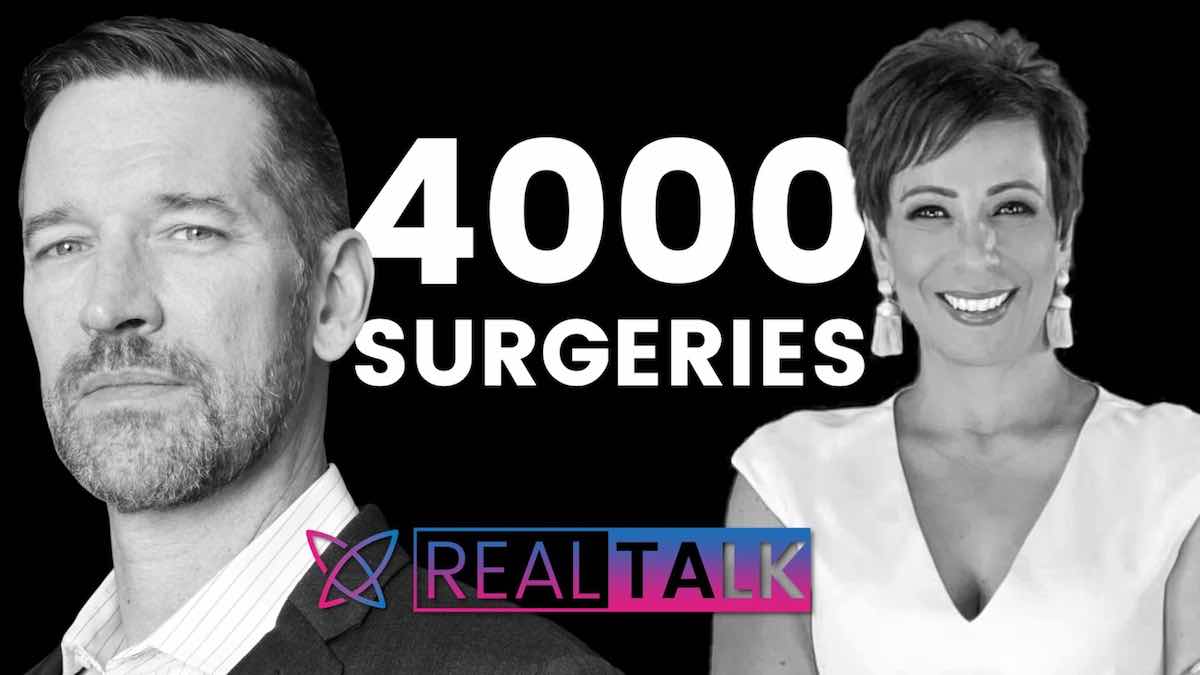Doctor Rich:
Welcome back to the Dr. Rich channel! Is it… Is it hot in here? I’m dying!
Cameraman [offscreen]:
Nah, bro. It’s just you.
Doctor Rich:
Or could it be menopause? Anyway, I’m going to ditch this jacket. And now for “Surgery’s Worst Nightmare.”
Don’t have time to read this post? Watch the video here instead!
Surgeon [wrapping up a surgery]:
And… we are all done! Nurse, let’s get the next patient ready.
Charge Nurse:
Okay. We’ll need about 20 minutes for turnover.
Surgeon [horrified]:
What?
Charge Nurse:
Yes. 20 minutes.
Surgeon:
Are you sure?
Charge Nurse [matter-of-factly]:
Yes. We’ll call you when we’re ready.
Doctor Rich:
So I have the privilege of being able to travel and lecture to help teach surgical procedures and surgical efficiency. And specifically one of those practices is how to improve OR turnover — and that means when the first case is done to the time that the next case is ready.
So the operating room itself is about a hundred dollars a MINUTE to be able to run (when you include all of the costs of the equipment, all the staffing — and this doesn’t include surgeon or anesthesia time). So the longer the delay is between cases, it becomes less and less efficient and profitable for a hospital to run this operation. And the more efficient you can get at turning OR time over, the more patients you can serve and the more lives you can save. Twenty minutes is actually a good target — although it’s not unusual. And I even say typical for 30 to 60 minutes to be the norm in a hospital who hasn’t implemented any efficiency strategies.
A lot has to go into that process — the patient that’s currently in the OR has to be taken to the recovery room, the handoff of that information needs to be given to the recovery room personnel, the next patient will have hopefully already been prepped but has to physically move from the pre-op holding area to the OR — and none of that can happen until the room’s been completely cleaned and sterilized.
Surgeon [narrating solemnly, as if it were his memoir]:
Thus began the longest 20 minutes of my life. What would I do? Who could I operate on? How could this be happening to me: the most important person in the hospital?
Doctor Rich:
So we hearken back to the archetype of surgeons not being the most humble people in the world (and very self-important) but at their core truly caring and really wanting to do the best for their patients and affect as many lives as they can.
Surgeon [narration continues]:
I pass the time by dictating notes and yelling at residents for no reason in particular. But even after all that, only four minutes have gone by.
Doctor Rich [laughing]:
So time passes differently during turnover time! Most of the staff (nursing directors, particularly) have a good laugh about the fact that surgeons totally misconstrue time — and they’ll be standing at the desk waiting for turnover (when it actually has only been about four minutes, and they think it’s been 20 minutes).
Surgeon:
I tried to motivate the OR staff to work faster by staring at them with my arms crossed. I even let out a heavy side to express my displeasure [sighs]…
Doctor Rich:
As obvious as that seems to NOT be a motivator — it seems like he needs to go see a Tony Robbins, personal motivator leadership kind of thing! As obvious as it seems that glaring and sighing is not the best way to motivate people, all surgeons (including myself) have stooped to that level — feeling that this behavior will somehow motivate the staff to go faster.
Charge Nurse [annoyed, looking at the Surgeon]:
You want to grab a mop?
Doctor Rich [laughing]:
I grabbed a mop once… They took it away from me right away. Not because I think they cared that I was mopping, but they were afraid I would screw it up!
Surgeon:
But nothing worked. Peering through the window. I frown disapprovingly at my own OR staff [Charge Nurse stares back menacingly, and Surgeon gets scared and moves away]. It only seemed to make things worse. Finally, I collapsed onto the sofa and the surgeon lounge, unable to muster the energy to eat the free snacks,
Doctor Rich [laughing]:
#Perspective! I think most surgeons have a little bit of an ego. They consider themselves to be the more important physicians in the hospital. But we DO get the privilege of front row parking and free meals in the hospital. And we have a noble calling where we actually get to not just help people — but instantly (in an hour surgical theater episode) can radically change someone’s life. But we’re depressed that we can’t get in the OR faster than 20 minutes!
Surgeon:
I was joined by other surgeons, each of them despondent. The scourge of turnover time, sucking out their soul like a Dementor’s kiss.
Doctor Rich:
You know that’s an interesting comparison! If you go to the normal physician’s lounge on the medicine floor, it’s like a happy hour party — well, minus the alcohol. But everybody’s socializing! Everybody’s talking and having fun! And then you go to the surgeon’s lounge and they’re sitting there despondent, or they’re just watching TV in silence — just waiting for the next case to roll back.
Surgeon:
So many questions running through my mind… Would I ever operate again? Should I help with turnover? Am I the drama?
Doctor Rich:
So clearly, surgeons CAN be the drama. I think it’s important. I think it’s critical. I think it’s vital that the surgeon shows the team that it’s important! It’s important to them that their team is important to them. Because they are! They’re the backbone — the nurses, the scrub techs, housekeeping, anesthesia providers. We all work together to make this process move forward. And in all my efficiency lectures, that’s one of the key elements to being part of the team — motivating the team, working together. So glaring, and sighing, and crossing your arms rarely helps move the ball down the field. You can check out our “Surgeon Swear Jar” reaction video here.
And most surgeons are absolutely wonderful healers. They’ve trained for a very long time to achieve that status — and they deserve all the respect that is congruent with that. But at the same time — surgeons are part of a team, part of a bigger picture. They can’t do it all by themselves. And on behalf of all surgeons, mad props to ALL of the staff at all of the hospitals that help us get those turnover times every day! Thanks for watching. I hope you found this educational and entertaining. Please share with a friend, and please like and subscribe!




